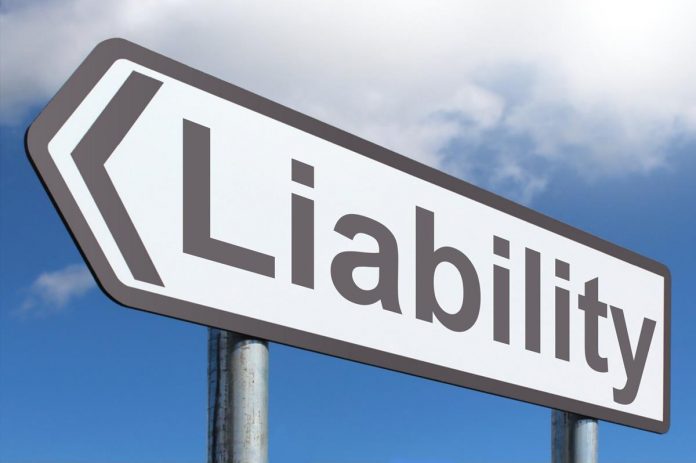This article is written by Puneet Chhabra, here he discusses the strict and absolute liability.
Introduction
Liability in its literal mean “burden” on the party. But in the law of torts, the liability can also be classified on the basis of the remoteness and intensity. If the intensity of the action of the party is such which cause serious harm to the other party then it amounts to ‘Strict liability’ and if the consequences are such which results from a hazardous act then the liability occurs is ‘Absolute’.
The Principle of Strict Liability
The principle of Strict liability could be traced back in the case of Rylands V Fletcher. In this case, which took place in the year 1868 the underlying principle of strict liability was laid down which states that any person who has the possession of any substance which can be hazardous will held liable. The principle also down some conditions to when does the person should be held responsible for the Strict Liability
- If such hazardous substance escaped
- And cause any damage to the person. Facts of the Case – F had a mill on his land and built a reservoir on his land to power the mill. The water from the reservoir flooded the coal mines owned by R. because of some accident. R then filed a lawsuit against F. The Court held that the defendant constructed the reservoir at his risk, and if an accident occurs, the defendant is liable for the accident and escape of the material.
From the above case, it can be interpreted that any person who keeps any hazardous substance in his possession and if such thing escaped and cause any damage or loss to the other party. The person in whose possession such thing has been found is liable for Strict Liability.
What are the Essential Conditions of Strict Liability
Dangerous Substances: The defendant will be held strictly responsible for Strict Liability only if a “dangerous” substances escape from his premises. Dangerous substance means any substance which will cause injury to others or cause mischief due to the negligence of the defendant.
Escape: Another essential condition to be fulfilled to make the defendant liable for the Strict Liability is that the dangerous substance should be escaped from the owner premises and cause damage to the other person from its escape.
For instance, the defendant has planted some poisonous plant on his land. the leaves of the plant have escaped and one of the cattle has eaten the leaves which results in the death of the plaintiff’s cattle. The defendant was held liable for the Strict Liability because the dangerous substance has escaped and damage to the cattle which result in his death. However, if the claimant’s cattle enter the defendant’s premises and eat the poisonous leaves and die, the defendant would not be liable. In the judgment of Reads v. Lyons & Co., it was held that the defendant can not be held liable if there is no escape.
Non-natural Use: In order to be strictly responsible, the land should be used in a non – natural way. The water collected in the reservoir was considered a non – natural use of the land in the case of Rylands v. Fletcher. Water storage is considered a natural use for domestic use. But the Court considered that the storage of water for the purpose of energizing a mill was not natural. When considering the term “non – natural,” it should be borne in mind that some special use must be used. The natural use of land is considered to be the supply of cooking gas through the pipeline, electrical wiring in a house, etc. For example, if the defendant lights a fire in his fireplace and a spark escapes and causes a fire, the defendant is not liable because it was natural land use.
Exceptions to the Rule of Strict Liability
There are certain exceptions to the rule of strict liability, which are
|
Absolute Liability
In simple words, the rule of absolute liability can be defined as the rule of strict liability except for the exceptions. In India, in the case of MC Mehta v Union of India, the rule of absolute liability developed. This is one of the most significant judgments concerning the concept of absolute liability. This is one of the most significant judgments concerning the concept of absolute liability. The occurrence of this case shows how Indian laws were inefficient at that time. The person can easily escape from his liability before the evolution of this Principle but with the foundation of the principle of the rule of Absolute Liability now strengthen the Indian laws and now helps the persons who get affected from the occurrence of this type of penal acts.
Facts of the case -Some amount of oleum gas was leaked in a particular area in Delhi from industry. Many people were affected because of leakage. The Apex Court then developed the rule of absolute liability on the strict liability rule and stated that the defendant would be responsible for the damage caused without taking into account the exceptions to the strict liability rule.
According to the rule of absolute liability, If any person carries out an inherently dangerous or hazardous activity, and if any harm is caused to any person by any accident that occurred during the performance of such an inherently dangerous and dangerous activity, the person who carries out such activity shall be liable. In the case of absolute liability, the exception to the strict liability would not be applied.
Following the rule of absolute liability laid down in the case of MC Mehta v UOI also upheld in the case of Bhopal Gas tragedy. And also the relief can be granted to the persons affected in this case the Indian Parliament has enacted the Public Liability Insurance Act in the year 1991.
Conclusion
From the article, we have seen that liability is not solely based on the act done by the defendant, but also it has different factors which determine the liability of the person. The liability can be extended in a huge way and cause harm to the public at large, it not only restricted to a private person but also to the large public.
 Serato DJ Crack 2025Serato DJ PRO Crack
Serato DJ Crack 2025Serato DJ PRO Crack










 Allow notifications
Allow notifications


